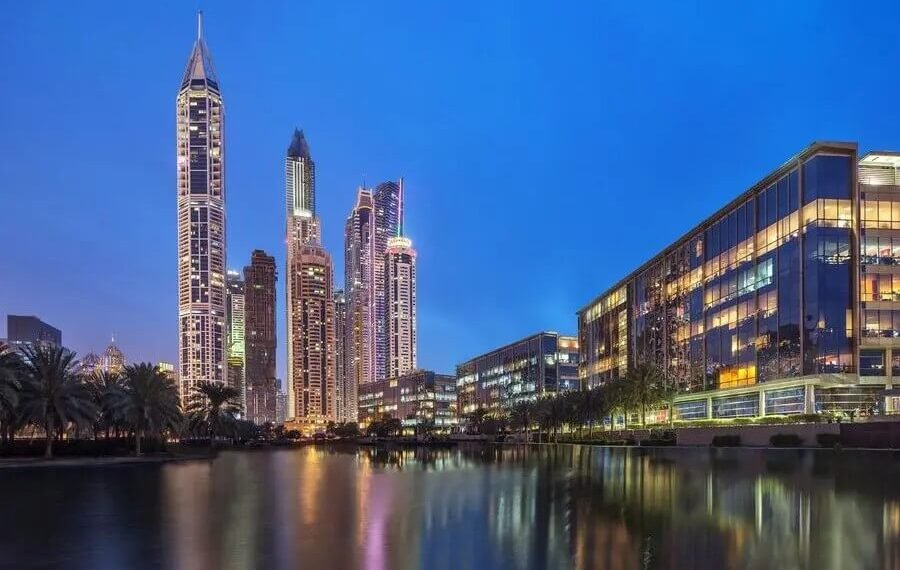
Dubai’s real estate market has long been synonymous with luxury, innovation, and high returns. But over the past few years, one particular sector has taken center stage — short-term rentals. From business travelers and digital nomads to tourists seeking flexibility, the demand for short-term accommodation in Dubai has surged. This shift has not only redefined property investment strategies but also reshaped how homeowners and investors perceive rental opportunities in the city.
What once was considered a niche market is now a thriving ecosystem powered by platforms like Airbnb, Booking.com, and local property management companies. With Dubai’s continued appeal as a global tourism hub, its short-term rental market has become one of the most dynamic and profitable segments in the Middle East.
Several factors have fueled the rapid growth of Dubai’s short-term rental industry. The city’s tourism recovery post-pandemic, coupled with a series of investor-friendly policies, has created the perfect environment for short-term leasing to flourish.
While almost every neighborhood in Dubai offers potential, a few standout areas consistently attract guests and deliver higher occupancy rates.
Downtown Dubai – Home to the Burj Khalifa and Dubai Mall, this area is the heartbeat of the city. Tourists prefer staying here for its proximity to attractions and entertainment. Investors can expect strong occupancy and premium nightly rates.
Dubai Marina – With its waterfront views and vibrant nightlife, Dubai Marina continues to be a favorite among tourists and business travelers alike. The area’s mix of modern apartments and easy access to beaches makes it ideal for short stays.
Palm Jumeirah – Known for its iconic shape and exclusive properties, Palm Jumeirah attracts luxury travelers. Though initial investment costs are higher, returns are equally rewarding due to the premium rental pricing.
Business Bay – Perfect for corporate visitors, Business Bay offers sleek apartments near major business hubs. Its strategic location ensures a steady influx of professionals year-round.
Jumeirah Beach Residence (JBR) – Combining beachside living with urban luxury, JBR appeals to families and leisure travelers, ensuring consistent bookings throughout the year.

Investors often face the question of whether to opt for short-term or long-term leasing. While both have their advantages, short-term rentals have gained significant traction for their flexibility and profitability.
Advantages of Short-Term Rentals:
Challenges of Short-Term Rentals:
In contrast, long-term rentals offer predictable monthly income with less involvement. However, the returns are typically lower, and landlords have less flexibility in adjusting prices or using the property.
Dubai’s short-term rental market operates under a well-defined regulatory framework. The Dubai Department of Economy and Tourism (DET) governs all short-term rental activities, ensuring that hosts and guests enjoy a secure and transparent system.
Key regulations include:
These regulations not only protect guests but also elevate Dubai’s reputation as a trusted short-term rental destination.
The success of Dubai’s short-term rental market is deeply connected to technology. Property management software, dynamic pricing tools, and smart home devices have streamlined operations and improved guest experiences.
Automated Property Management Systems:
Platforms now allow owners to automate bookings, guest check-ins, and cleaning schedules, reducing manual effort and ensuring consistent service quality.
Dynamic Pricing Models:
AI-driven pricing tools analyze market demand, events, and competitor rates to help hosts optimize their nightly prices and maximize occupancy.
Smart Home Integration:
Features like keyless entry, digital thermostats, and virtual concierge services enhance convenience and appeal to tech-savvy guests.
These innovations have made it easier for investors, even those living abroad, to manage Dubai properties efficiently and profitably.

Dubai’s reputation as a world-class event destination plays a significant role in shaping rental demand. Events such as the Dubai Shopping Festival, Global Village, Art Dubai, and Formula 1 in Abu Dhabi draw thousands of international visitors, creating rental spikes during these peak times.
Additionally, global expos, summits, and conferences ensure consistent demand for business travelers seeking short-term accommodations near major event venues. The city’s ongoing tourism campaigns and infrastructure investments continue to fuel this growth cycle.
According to recent data from Dubai’s property analysts, the average gross yield for short-term rentals ranges between 6% to 11% annually, depending on location and management efficiency. Premium waterfront and downtown properties tend to generate the highest returns due to strong tourist demand and limited availability.
As the market matures, more institutional investors and property developers are expected to enter the short-term rental space. This professionalization of the sector is likely to increase competition but also drive higher standards and transparency.
While some property owners manage their listings independently, many prefer outsourcing operations to professional short-term rental management companies. These firms handle everything — from marketing and bookings to guest communication and housekeeping — in exchange for a percentage of the revenue.
The benefits of using management companies include:
With Dubai’s competitive short-term rental landscape, professional management often makes the difference between average and exceptional returns.
Dubai’s real estate market is increasingly moving toward sustainability and eco-friendly practices. Short-term rental properties are now incorporating energy-efficient appliances, smart lighting, and water-saving systems. Guests, too, are becoming more conscious of eco-friendly accommodations, creating a new niche for green rentals.
Looking ahead, Dubai’s short-term rental market shows no signs of slowing down. The upcoming years will likely bring:
The city’s vision to attract 25 million annual visitors in the coming years ensures that the demand for flexible, high-quality short-term housing will remain strong.
Dubai’s short-term rental market represents a unique intersection of luxury, innovation, and opportunity. It caters to the city’s global visitor base while offering investors impressive returns and flexibility. As more travelers seek home-like accommodations and the city continues to expand its tourism offerings, short-term rentals are set to remain one of the most lucrative investment avenues in Dubai’s real estate landscape.
For investors ready to embrace the future of hospitality and property management, Dubai offers a vibrant, well-regulated, and high-reward environment that’s hard to match anywhere else in the world.
Do Follow Estate Magazine on Instagram.
